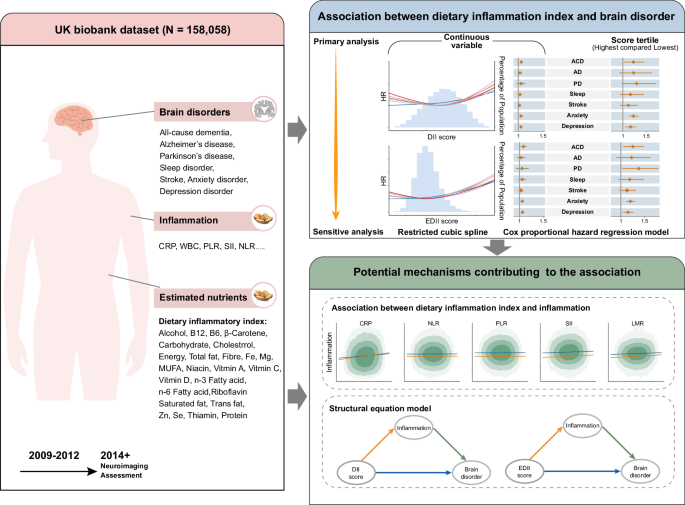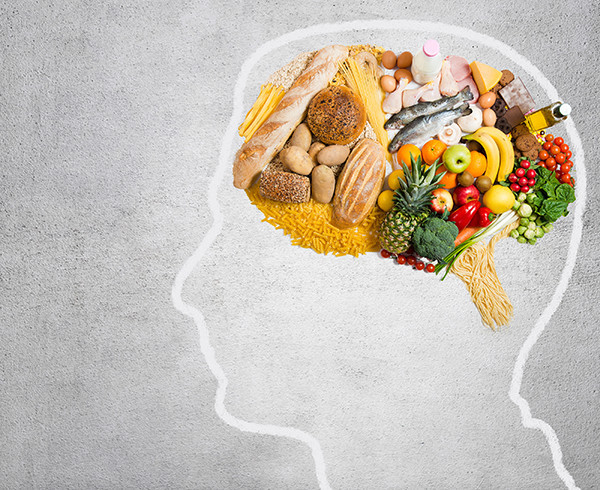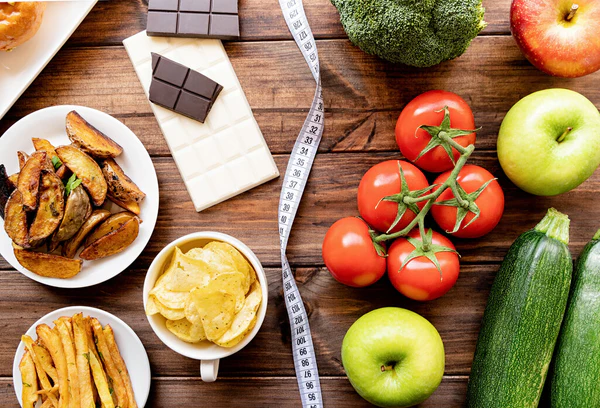
The Brain on Food: A Deep Dive into the Link Between Diet, Inflammation, and Cognitive Health
The Modern Dilemma: Unraveling the Connection Between What We Eat and How We Think
In an age of unprecedented access to information, we are simultaneously facing a rising tide of chronic health issues, many of which reside not in the body, but in the brain. Conditions like chronic headaches, brain fog, anxiety, depression, and even devastating neurodegenerative diseases like Alzheimer’s are becoming increasingly common. This has sparked a revolution in both mainstream and Alternative Medicine, prompting a critical question: Could the key to a healthier brain be found not in a pharmacy, but on our plates? A growing body of research and influential Book Reviews point toward a powerful, and for many, a surprising culprit behind cognitive decline: our modern, carbohydrate-heavy diet. This article delves into the provocative thesis that grains, sugars, and processed carbohydrates are primary drivers of systemic inflammation, a silent process that can wreak havoc on our most vital organ—the brain. We will explore the science behind this claim, its practical implications for daily life, and offer a balanced perspective on how you can leverage this knowledge for better Mental Health and long-term wellness.
Section 1: The Core Thesis – How Modern Carbs Wage War on the Brain
The central argument challenging conventional dietary wisdom is that carbohydrates, particularly those containing gluten and high amounts of sugar, are potent inflammatory agents. For decades, dietary fat was vilified as the primary cause of everything from heart disease to obesity. This new perspective, however, shifts the focus, proposing that the true danger lies in the constant barrage of sugar and refined grains that characterize the modern Western diet. This theory, a hot topic in Nutrition News, is built on a few key concepts.
Systemic Inflammation: The Silent Fire
Inflammation is the body’s natural response to injury or infection—a crucial part of healing. However, when the body is constantly exposed to triggers like high blood sugar, this inflammatory response becomes chronic and systemic. This low-grade, persistent inflammation is like a slow-burning fire that damages cells and tissues throughout the body. The brain, once thought to be protected by the formidable blood-brain barrier, is now understood to be highly vulnerable to this process. Chronic inflammation disrupts neuronal communication, impairs the growth of new brain cells (a process called neurogenesis), and accelerates cellular aging. This foundational concept connects directly to our overall Health & Wellness, suggesting that managing inflammation is paramount for a long and healthy life.
The Role of Sugar and Glycation
When we consume high-glycemic carbohydrates (like bread, pasta, and sugary drinks), our blood sugar levels spike. Excess glucose in the bloodstream binds to proteins and fats, creating harmful molecules called Advanced Glycation End-products (AGEs). This process, known as glycation, is essentially a “browning” or “caramelizing” of our cells. AGEs are highly inflammatory and generate massive amounts of free radicals, which cause oxidative stress—another key driver of cellular damage. In the brain, this can manifest as impaired memory, reduced cognitive function, and an increased risk for dementia. This insight is a cornerstone of modern Personal Development, as optimizing brain function is key to achieving personal and professional goals.
Gluten: More Than Just a Gut Problem
The argument extends beyond sugar to target gluten, the protein found in wheat, barley, and rye. While its detrimental effects on individuals with celiac disease are well-documented, this perspective posits that a much larger portion of the population has a non-celiac gluten sensitivity. This sensitivity can trigger an inflammatory immune response that begins in the gut but doesn’t end there. Through a mechanism often called “leaky gut,” inflammatory proteins can enter the bloodstream and travel to the brain, contributing to a wide range of neurological symptoms, from depression to migraines. This gut-brain axis is a major focus in Holistic Health circles.
Section 2: A Detailed Analysis – The Biological Mechanisms at Play

Brain inflammation diet – Dietary inflammatory index and brain disorders: a Large …
To fully grasp the implications of this dietary model, it’s essential to understand the biological pathways through which these foods are proposed to exert their effects. This isn’t just about calories; it’s about how different macronutrients communicate with our genes and cells.
The Fat and Cholesterol Paradigm Shift
Perhaps the most controversial aspect of this dietary philosophy is its complete rehabilitation of dietary fat and cholesterol. Contrary to decades of low-fat dogma, this model argues that the brain is not only dependent on fat but thrives on it. The human brain is nearly 60% fat, and cholesterol is a critical component of neuron membranes and a precursor to vital hormones and Vitamin D. The argument states that a diet low in healthy fats and cholesterol starves the brain of its most essential building blocks. The recommendation is to embrace healthy fats from sources like avocados, olive oil, nuts, seeds, and grass-fed meats, which provide anti-inflammatory omega-3 fatty acids and energy without the insulin spike of carbohydrates. This shift in thinking has profound implications for Meal Planning and creating Healthy Recipes.
BDNF: The Brain’s “Miracle-Gro”
Brain-Derived Neurotrophic Factor (BDNF) is a crucial protein that promotes the survival of existing neurons and encourages the growth of new ones. It is fundamental for learning, memory, and high-level thinking. Research has shown that a diet high in sugar and refined carbohydrates significantly suppresses BDNF production. Conversely, a diet low in carbohydrates and high in healthy fats, particularly one that induces a state of ketosis, has been shown to dramatically increase BDNF levels. This is complemented by other lifestyle factors; for instance, regular exercise is one of the most potent stimulators of BDNF, making Fitness Tips an essential part of any brain-health protocol.
The Gut-Brain Axis in Action
The gut is often called the “second brain,” and for good reason. It houses trillions of bacteria that collectively form the gut microbiome. This ecosystem plays a vital role in everything from digestion to immune function and even mood regulation (by producing neurotransmitters like serotonin). A diet high in processed foods and sugar feeds harmful bacteria, leading to an imbalance known as dysbiosis. This imbalance can increase intestinal permeability (“leaky gut”), allowing inflammatory molecules to pass into the bloodstream and trigger neuroinflammation. A diet rich in fiber from vegetables and healthy fats, on the other hand, nourishes beneficial bacteria, strengthening the gut barrier and supporting robust Mental Health.
Section 3: Implications and Insights – Building a Brain-Healthy Lifestyle
Understanding the theory is one thing; applying it is another. Adopting this lifestyle requires a significant shift in mindset and daily habits, impacting everything from grocery shopping to social events.
Practical Dietary Adjustments
Transitioning to a low-carb, high-fat, gluten-free diet involves a complete overhaul of the pantry. This is where Organization Tips and Decluttering your kitchen of tempting, processed foods becomes a critical first step.
- Foods to Embrace: Above-ground vegetables (leafy greens, broccoli, cauliflower), healthy fats (avocado, olive oil, coconut oil), nuts and seeds, eggs, grass-fed meat, and wild-caught fish.
- Foods to Avoid: All forms of sugar, all grains (wheat, rice, corn, oats), starchy vegetables (potatoes), and most fruits (berries in moderation are okay).
This approach to Food & Cooking emphasizes whole, unprocessed ingredients. Learning a few simple, Healthy Recipes can make the transition enjoyable and sustainable. For those interested in Sustainable Living, this diet naturally aligns with sourcing local, seasonal produce and pasture-raised animal products. Some may even take up Urban Gardening to grow their own compliant vegetables and herbs.
Beyond the Plate: A Holistic Framework

True cognitive wellness isn’t achieved through diet alone. It’s a holistic endeavor that integrates several lifestyle pillars.
- Sleep Health: Prioritizing 7-9 hours of quality sleep per night is non-negotiable. During sleep, the brain clears out metabolic waste products, consolidates memories, and repairs itself.
- Stress Management: Chronic stress floods the body with cortisol, an inflammatory hormone that is toxic to brain cells. Practices like Mindfulness, Meditation, and gentle movement found in Yoga News are powerful tools for mitigating stress.
- Physical Activity: As mentioned, exercise boosts BDNF, improves blood flow to the brain, and reduces insulin resistance. A mix of aerobic exercise, strength training, and enjoying the Outdoor Living lifestyle is ideal.
This integrated approach can lead to significant gains in Productivity Tips and an improved Work-Life Balance, as a sharper mind and more stable energy levels enhance performance in all areas of life.
Navigating Real-World Challenges
Implementing such a restrictive diet presents practical challenges. Travel Tips for staying on track include packing compliant snacks, researching restaurant menus in advance, and booking accommodations with a kitchenette. Social situations and Family Life can also be tricky. Clear communication about your dietary choices and offering to bring a compliant dish to gatherings can help. For parents, applying these principles requires careful planning to ensure children receive balanced nutrition, making Parenting Tips from nutrition-savvy sources invaluable.
Section 4: A Balanced View – Strengths, Criticisms, and Recommendations
No dietary theory is without its critics, and it’s crucial to approach such claims with a balanced perspective. While the “carbs-as-villain” narrative has gained significant traction, it is not universally accepted by the medical and nutritional science communities.
Strengths and Positive Takeaways

The greatest strength of this dietary model is its unwavering focus on eliminating processed foods, added sugars, and refined carbohydrates. This is advice that virtually all health experts can agree on. By encouraging a diet based on whole, nutrient-dense foods, it promotes better blood sugar control, weight management, and reduced inflammation. The emphasis on the gut-brain connection has been a significant contribution to public health discourse, encouraging people to consider their digestive health as integral to their overall well-being, including Beauty & Skincare, as skin health often reflects gut health. For many, this approach serves as a powerful tool for Self-Improvement and taking control of their health, particularly when it comes to Aging Well and preventing cognitive decline in Senior Living.
Criticisms and Common Pitfalls
The primary criticism is the broad demonization of all carbohydrates, including nutrient-rich whole grains, legumes, and many fruits. These foods are excellent sources of fiber, vitamins, and minerals for many people. Critics argue that eliminating them entirely can lead to nutrient deficiencies and an unnecessarily restrictive diet that is difficult to sustain. There are also concerns about the potential for high intake of saturated fats from animal sources. A common pitfall is the “dirty keto” approach, where individuals consume large amounts of processed meats and unhealthy fats while neglecting vegetables. Furthermore, from a Personal Finance perspective, a diet centered on grass-fed meats, wild fish, and organic produce can be significantly more expensive, requiring careful Budget Tips and Financial Planning.
Recommendations for a Balanced Approach
For most people, a less dogmatic and more personalized approach is likely the most beneficial and sustainable path.
- Consult a Professional: Before making any drastic dietary changes, especially if you have underlying health conditions, consult with a doctor or a registered dietitian.
- Focus on Reduction, Not Just Elimination: Start by drastically reducing or eliminating added sugars, sugary drinks, and refined grains (white bread, pastries, white pasta). This single step provides the majority of the benefits.
- Choose Carbs Wisely: If you tolerate them well, prioritize high-fiber, low-glycemic carbohydrates like berries, legumes, and ancient whole grains in moderation.
- Prioritize Healthy Fats: Incorporate plenty of monounsaturated and polyunsaturated fats from plants like avocados, nuts, seeds, and olive oil.
This balanced strategy allows you to reap the anti-inflammatory benefits without the extreme restrictions, making it a more accessible form of Personal Development.
Conclusion: A New Blueprint for Brain Health
The conversation ignited by books like “Grain Brain” has fundamentally shifted our understanding of the relationship between food and cognitive function. It has successfully brought the concepts of neuroinflammation and the gut-brain axis from the laboratory into the public consciousness, making them a key part of the Lifestyle News cycle. While the complete vilification of all carbohydrates remains a point of scientific debate, the core message is undeniably powerful: the food choices we make every day have a direct and profound impact on the health and longevity of our brains. The most crucial takeaway is the empowerment that comes from this knowledge. By reducing our intake of sugar and processed foods while embracing a diet rich in whole foods, healthy fats, and colorful vegetables, we can actively combat inflammation, support cognitive function, and build a foundation for a sharper, healthier, and more resilient mind for years to come.
You may also like
Archives
- February 2026
- January 2026
- December 2025
- November 2025
- October 2025
- September 2025
- August 2025
- July 2025
- June 2025
- May 2025
- April 2025
- March 2025
- January 2024
- October 2023
- September 2023
- August 2023
- July 2023
- June 2023
- May 2023
- April 2023
- March 2023
- February 2023
- January 2023
- December 2022
- November 2022
- October 2022
- September 2022
- August 2022
- June 2022
- May 2022
- April 2022
- March 2022
- January 2022
- December 2021
- November 2021
- October 2021
- August 2021
- November 2020
- July 2020
- May 2020
- April 2020
- March 2020
- August 2018
- July 2018
- June 2018
- April 2018
- March 2018
Categories
- Aftercare Procedures
- Age Groups
- AI/ML
- Alternative Medicine
- Ambient Computing
- Animal Health
- Animal Husbandry
- Animals
- Anti-Aging
- Architectural Design
- Art And Technology
- Auditory Science
- Augmented Reality
- Automation
- Babies
- Baby
- Beauty & Skincare
- Beauty Industry
- Biohacking
- Biomechanics
- Book Reviews
- Breastfeeding
- Budgeting
- Budgeting Strategies
- Business
- Cardiovascular Health
- Career Advice
- Career Development
- Career Growth
- Cats
- Chess
- Chronobeauty
- Circular Economy
- Civic Technology
- Cleaning Tips
- Cloud Computing
- Cognitive Health
- Cognitive Performance
- Cognitive Science
- Community
- Community Building
- Community Engagement
- Community Living
- Computer Vision
- Consumer Guides
- Consumer Trends
- Container Gardening
- Content Analysis
- Content Non-Technical
- Content Strategy
- Cooking Techniques
- Cosmetic Chemistry
- Cultural Events
- Cycling
- Data Analysis
- Data Engineering
- Data Science
- Database
- Design Psychology
- Design Trends
- Developer Productivity
- Diet
- Diet
- Diet And Nutrition
- Digital Identity
- Digital Media
- Digital Wellbeing
- DIY
- DIY Projects
- Dogs
- Engineering Culture
- Entertainment News
- Environmental Impact
- Environmental Science
- Equity Compensation
- Ethical AI
- Exercise
- Exercise Science
- Exercise Technique
- Exotic Pets
- Fall Gardening
- Family
- Family Health
- Family Life
- Fashion Business
- Fashion Industry
- Fashion News
- Fashion Tech
- Financial Analysis
- Financial Optimization
- Financial Planning
- Flooring Maintenance
- Food
- Food Psychology
- Food Safety
- Food Science
- Food Tech
- Functional Fitness
- Functional Training
- Future Of Work
- Garden Care
- Garden Maintenance
- Gardening Tips
- Geospatial Data
- Gig Economy
- Greece
- Greek
- Greek Food
- Green Technology
- Gymnastics
- Hardware Engineering
- Health
- Health And Wellness
- Health Informatics
- Health Science
- Health Tech
- Health Technology
- Healthcare
- Healthcare Management
- Healthy Eating
- Healthy Recipes
- Holistic Health
- Holistic Wellness
- Home & Living
- Home Decor
- Home Financing
- Home Health
- Home Improvement
- Home Maintenance
- Home Organization
- Home Styling
- Horticulture
- Household Chemistry
- Identity Management
- Indoor Gardening
- Industrial Design
- Industry Analysis
- Infant Nutrition
- Infrastructure Management
- Ingredient Deep Dive
- Integrative Health
- Integrative Medicine
- Interior Design
- Internet of Things
- Internet of Things (IoT)
- Invalid Request
- Investment Strategies
- Investment Strategy
- IoT
- Kids
- Leadership Development
- Learning Strategies
- Lifestyle
- Lifestyle Brands
- Lifestyle News
- Lifestyle Optimization
- Literary Criticism
- Literature
- Logistics Management
- Material Science
- Materials Science
- Meal Planning
- Media Analysis
- Meditation
- Mental Health
- Mental Performance
- Mental Wellness
- Miami
- Miami Food
- Mind And Body
- Minimalism
- Mobile Development
- Neuroscience
- No Applicable Categories
- Nursing
- Nutrition
- Nutrition News
- Open Source
- Operating Systems
- Operational Resilience
- Opinion
- Organization Tips
- Outdoor Living
- Over 40
- Over 50
- Over 60
- Parenting
- Parenting
- Parenting Strategies
- Performance
- Performance Optimization
- Personal Development
- Personal Finance
- Personal Growth
- Personal Productivity
- Pet Care
- Pet Safety
- Philosophy
- Plant Care
- Politics
- Product Formulation
- Productivity
- Productivity Engineering
- Protein
- Psychology
- Psychology of Space
- Quantified Self
- Reading Culture
- Real Estate Investment
- Recipes
- Regulatory Compliance
- Remote Work
- Renovation Planning
- Resource Management
- Respiratory Health
- Responsible Pet Ownership
- Retail Strategy
- Retail Technology
- Robotics
- Science
- Seafood
- Seasonal Gardening
- Security
- Sedentary Health
- Self-Care
- Skincare Science
- Skincare Trends
- Sleep
- Sleep Health
- Smart Home
- Smoothies
- Social Impact
- Soft Skills
- Soil Health
- Spatial Computing
- Spatial Design
- Stress Management
- Supplements
- Sustainability
- Sustainability Science
- Sustainable Engineering
- Sustainable Fashion
- Systems Engineering
- Tax Optimization
- Tax Strategy
- Tech Investment
- Technical Writing
- Testing
- Travel
- Travel News
- Travel Safety
- Travel Tips
- Trend Analysis
- Tropical Plants
- Uncategorized
- Urban Gardening
- Urban Planning
- User Experience
- Veggie
- Vietnam
- Virtual Events
- Volunteering
- Wealth Management
- Wearable Technology
- Wellness
- Wellness Technology
- Winter Gardening
- Work-Life Balance
- Workplace Culture
- Workspace Setup
- World
- Writing
- Writing Skills
- Year In Review
- Yoga
- Yoga News
- Zero Waste




Leave a Reply